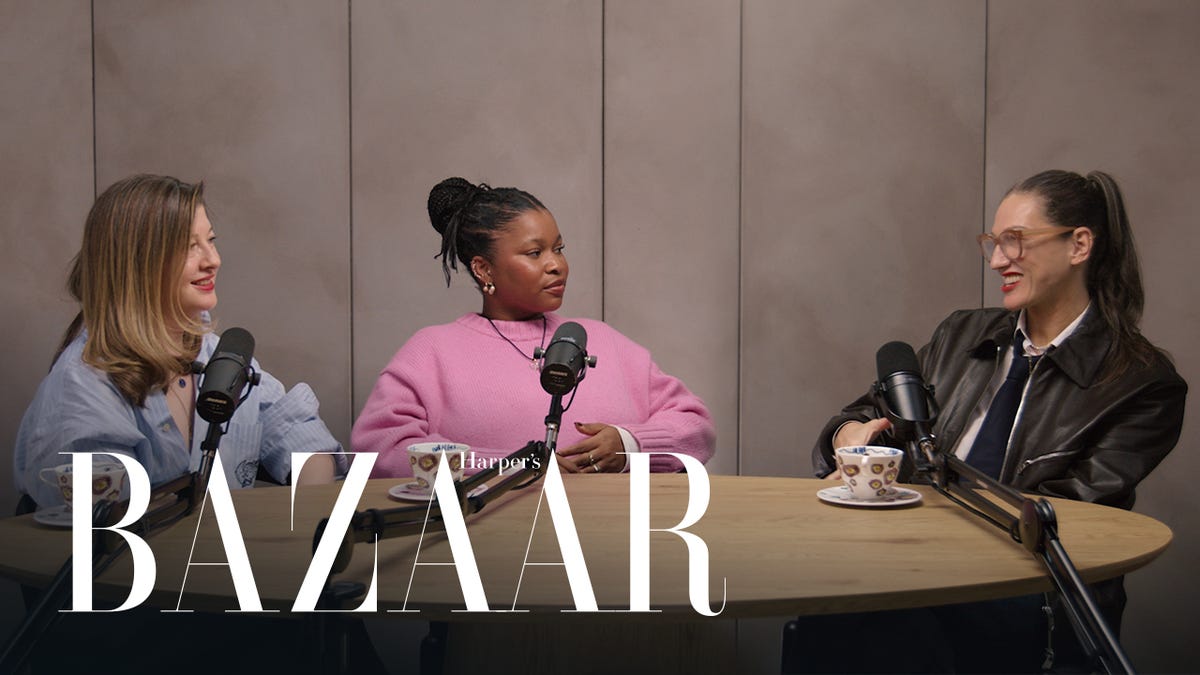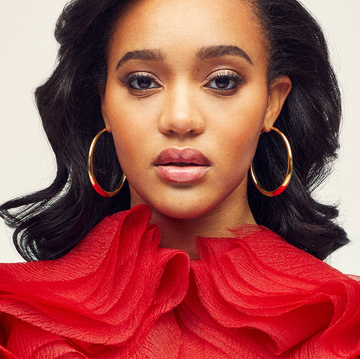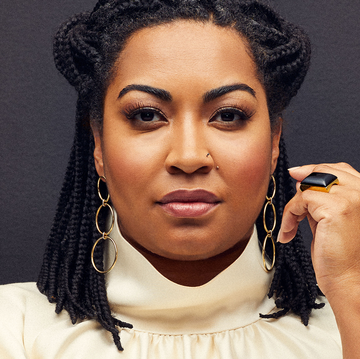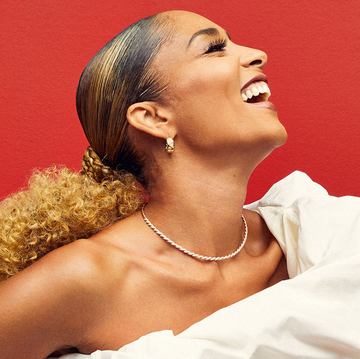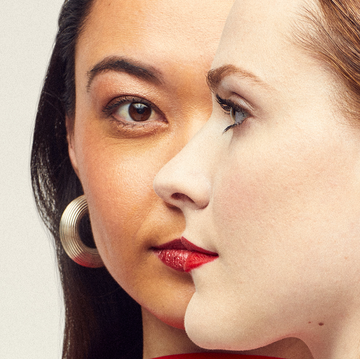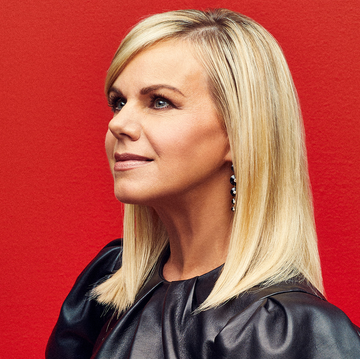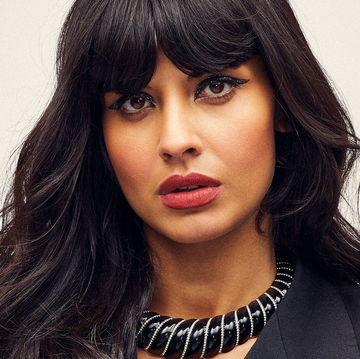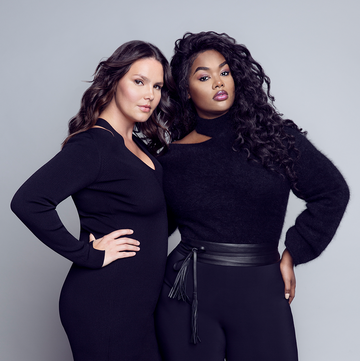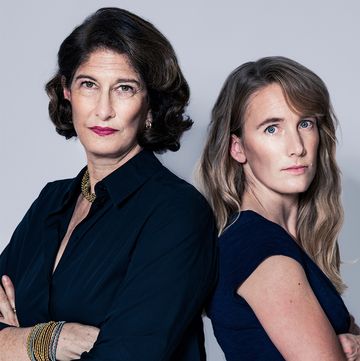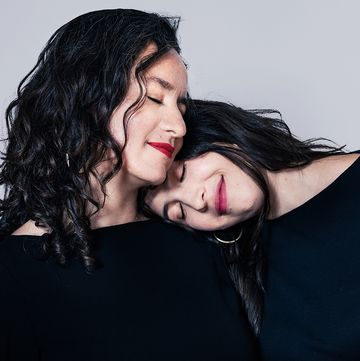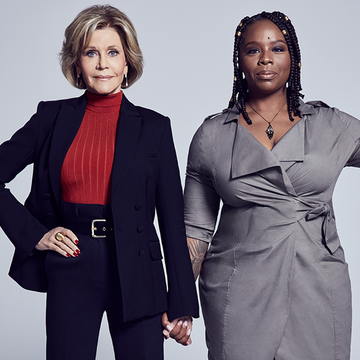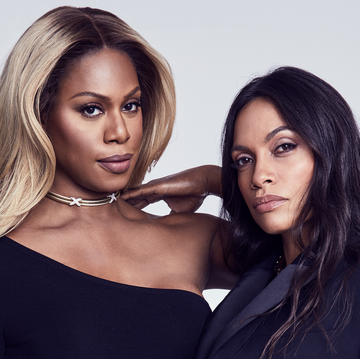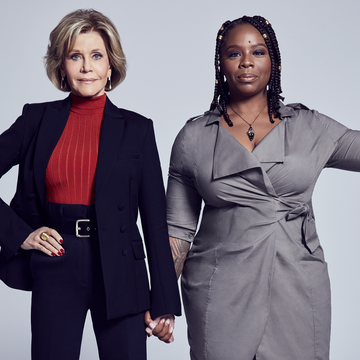The new generation of #WomenWhoDare are those who refuse to conform. They dare to do the impossible, encouraging young visionaries to break—not just push—boundaries. Here, Bumble's founder Whitney Wolfe Herd opens up about her own experience with sexual harassment, and offers advice on how to handle the aftermath for our 2017 Women Who Dare series.
Three years ago, I lived every professional woman’s worst nightmare. At 24, after I sued my former employer, the online backlash nearly cost me my future.
I’m not going to share the specifics here nor anywhere. But the repercussions for filing my lawsuit were abhorrent. Online strangers, journalists and trolls threatened me in article comment sections and called me hateful names on Twitter. Gossip pages published story after story of speculation meant to discredit me. People who’d never met me took cruel pleasure in dissecting and distorting my private life, reducing me to a caricature I did not know or recognize. Still, if you had Googled me back in 2014, that was the only Whitney you’d see.
For months, it was hard for me not to feel like all that ugliness was stamped across my forehead. I sank into a deep depression. I became an insomniac and drank too much in weak attempt to numb the pain and fear I was experiencing. At my lowest point, I wanted to die. I was only 24, and already I felt like I was finished. That’s the poisonous power of online harassment and abuse—especially when it lands on your phone every morning and follows you everywhere you go.
I know I’m not the first to travel this dark path, and I won’t be the last. The public response to a woman standing up for herself has been nothing short of awful in years past, but that tide is turning as evident by the almost daily headlines that dominate today’s news cycle. To other young women dealing with online harassment, and those too frightened to tell their story: other people’s words and actions do not define who you are. Do not buy into their stunted vision of who you can become. Bullies will attack your confidence, but you cannot let them kill your ambition. Don’t let something hurtful in your past hold you back from what you want to do. Be brave.
In my case, I came through the fog of my ordeal with newfound clarity. The real problem was not me, or the media, or even the conflicting accounts of what happened. The problem was the lack of accountability online, which emboldens aggressors and turns women into targets. According to Pew, more than one in five young women reports being sexually harassed online. Put simply, the internet has democratized misogyny. A flaw in the system is now a feature.
I quickly realized that each day, some version of what had happened to me in the aftermath of filing my lawsuit was also happening to countless others—from girls who were just forming their own fragile concepts of self-worth, to young women just starting out in their careers, to professional women trying to make their way in male-dominated environments. I wanted to change things; to help women feel more empowered and secure; to fix the predatory culture I hated. That drive to make a difference helped me get back on my feet.
I channeled the pain of my own experience into trying to engineer a better way. And in building a remedy to the problems I’d faced, I took my power back.
Three years later, Bumble has more than 23 million users worldwide. Not only do women make the first move, which flips the conventional male-female power dynamic on its head, we have a zero-tolerance policy for abuse. There are no second chances. Harass someone on Bumble and you’re banned for life.
Harsh? Maybe. But I feel strongly that we won’t end misogyny until we start holding each other to higher standards, and that starts with setting clear boundaries and enforcing them.
As for me, after several years shunning the spotlight in fear of those same reactions, I’m stepping into a more public profile. Bumble is growing, and sharing my story is part of living our values. Of course, the terrible articles from 2014 still exist, but I have learned to live with them—reminders of battles that I and so many other women have endured. Today, I can acknowledge those scars without shame, and I draw on them as motivation: Motivation to build, motivation to make life better, motivation to empower others to go after what they want without fear.
To be clear: none of what I’ve described has been easy. Everyone deals with trauma differently, and recovery is always a work in progress. But courage is contagious, and the more that people stand up and speak out against misogyny, the faster we can create the kind of world where we won’t have to.
It’s happening already. I’m so inspired by the women I see all around me: Women creating the kinds of businesses and organizations they’re tired of waiting for, from production companies that champion women’s voices, to venture capital firms that invest in female-led enterprises, to women-only co-working clubs and industry-focused professional networks. Women stepping forward to run for elected office at every level. Women becoming the bosses they wish they’d had; the leaders that others can look up to.
So, for every woman who’s said or felt “Me Too,” I say hold fast to your ambition. Your experience is part of you, but it will only define you if you let it. Find a supportive community, and seek out mentors who respect you and believe in your abilities. Remember, you are not a victim—you are a survivor, and there is nothing more powerful than that.


